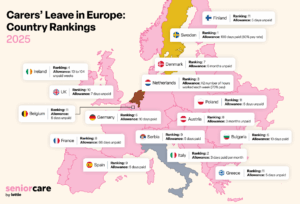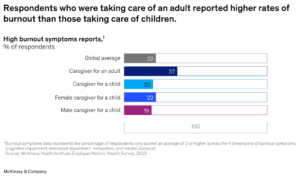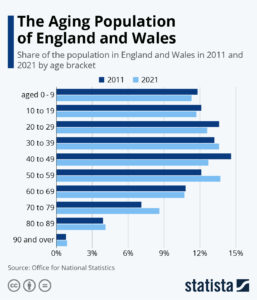A recent study by PwC, Women in Work 2025, calculated that increases in women’s participation in the workforce contributed to a productivity uplift of 0.30% per year, an approximate UK GDP increase of £6.2bn a year. This is talent that many businesses will want to access and benefit from. Yet significant barriers remain as women in their critical career advancement phase often find themselves juggling caregiving responsibilities for children and elderly relatives.
The Glass Ceiling in Action
At the point of earning promotions and taking leadership roles:
- women are 7X more likely than men to leave work for caregiving (TUC, 2023)
- 1.46M women can’t work due to family duties (TUC, 2023)
- 84% of “sandwich carers” (work, kids, aging parents) are women (Age UK, 2022)
What Can Businesses Do?
Businesses recognise the value in a diverse workforce and are looking for ways to better support their people. Until recently the focus has been on childcare provisions; eldercare is less visible and more complicated. And there isn’t a one size fits all here. Flexible working arrangements and unpaid leave is one approach many businesses are now taking. Great in a crisis, but probably not suitable for all ongoing caring needs.

Another practical option is Homesharing, a scheme that carefully pairs a householder (an older person with a spare room) with a vetted sharer who provides live-in companionship and light support in exchange for affordable accommodation.
Two Generations
Our Homeshare scheme offers a unique corporate benefit connecting employees’ elderly relatives with vetted live-in companions – creating peace of mind.
Benefits for Employers:
- retain top talent & reduce absenteeism
- improve productivity & well-being
- Strengthen DEI efforts
- minimal admin—employees contract directly with Two Generations
Speak to the team today about how Two Generations can help your organisation support caregiving employees.
Call us now on 03333 44 7738.










